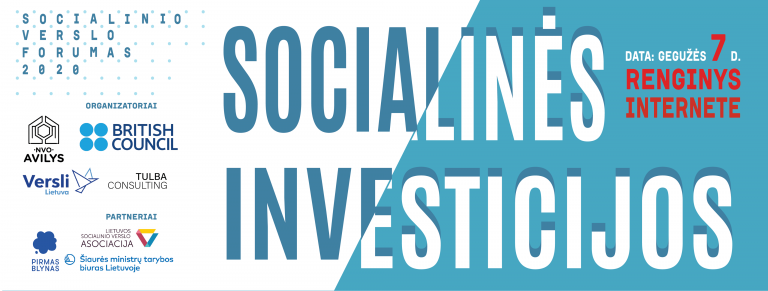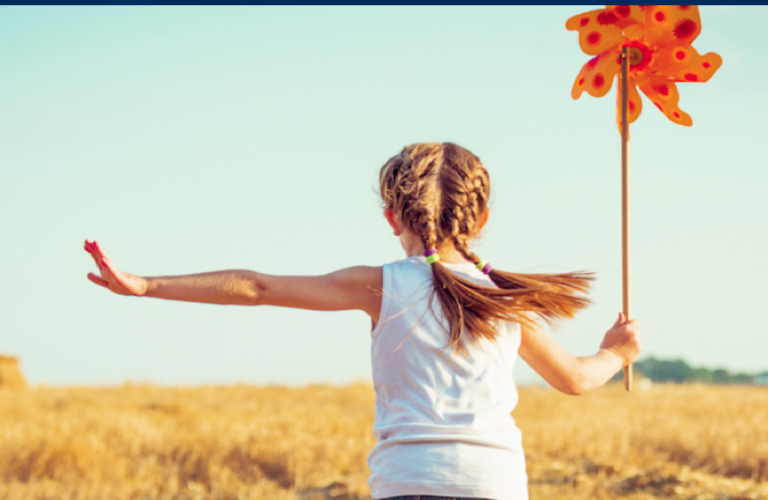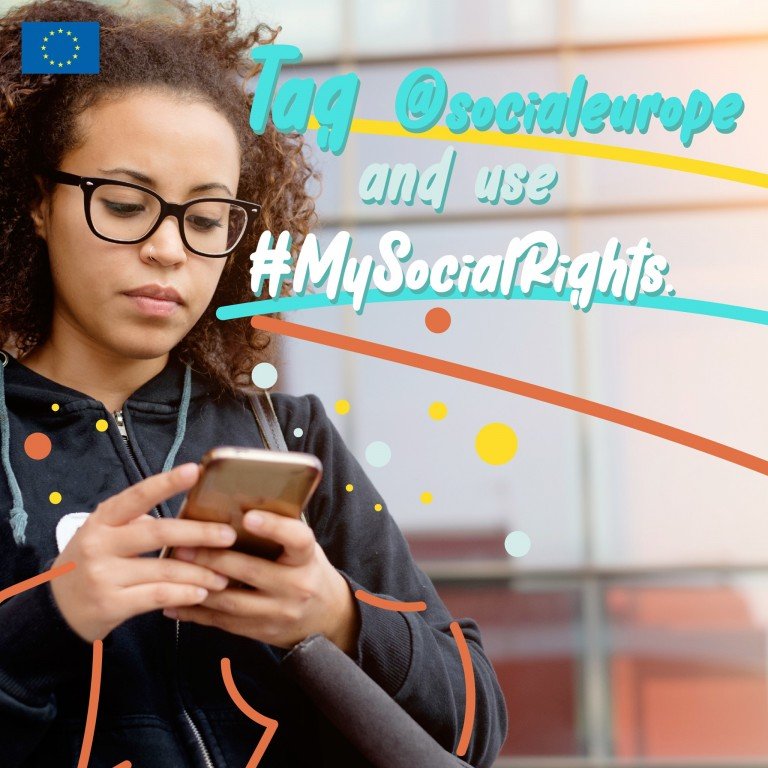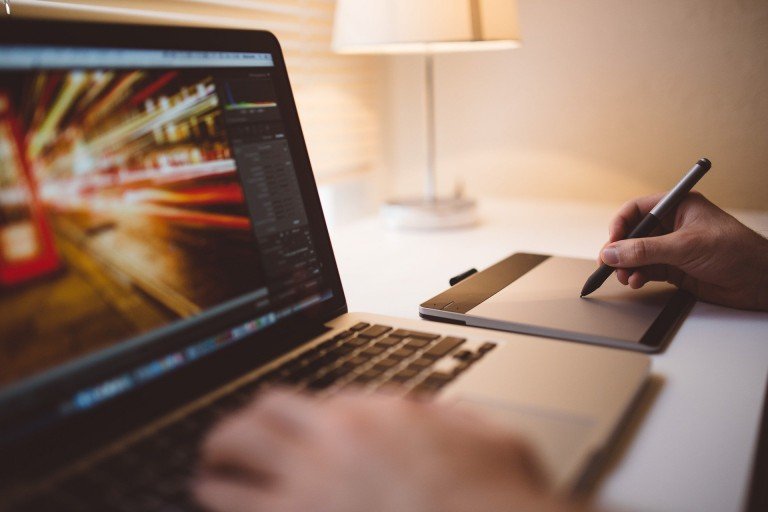On May 7th a large group of partners has organized annual Social Entrepreneurship Summit in Vilnius, Lithuania. Due to ongoing quarantine, all of the proceedings of the Summit have been aired online.
Here is a program of the event:
10:00 Welcoming and introduction
10:15 Lithuania Social Entrepreneurship environment review – that has been achieved in 2019, Andželika Rusteikienė, Lithuania Social Enterprise Association (LT with simultaneous translation)
10:35 Social Finance – review of the environment in Lithuania, demand, and challenges, Phil Tulba, Tulba Consulting (EN)
11:05 Social investment global perspective, Mariel Vincent Andres Rapisura, SEDPI Pte. Ltd., Philippines (EN)
11:45 Break
12:00 Measuring social impact: good case practice of Finland, Katja Anoschkin, Finnish Association for Social Enterprises (EN)
12:40 Reach for Change incubator and impact investment journey in Lithuania, Jurgita Ribinskaitė – Glatzer, Reach for Change (LT with simultaneous translation)
13:10 Break
13:40 Social impact bonds model and application possibilities in Lithuania, Neringa Morkvėnienė, Ministry of Finance (LT with simultaneous translation)
14:10 Impact procurements model implementation in pilot municipalities – Kaunas case, Daina Kleponė, managing director Enterprise Lithuania and Jolanta Baltaduonytė, Kaunas municipality (LT with simultaneous translation)
14:40Social investment in Lithuania – an alternative instrument to support social innovations, Eitvydas Bingelis, Vice-minister of Social Security and Labour and Viktorija Krutulytė, European Social Fund Agency (LT with simultaneous translation)
15:10 Break
15:25 Panel discussion (LT with simultaneous translation): Investments to social innovation and interinstitutional cooperation
Moderator: Arūnas Survila, NVO Avilys
Participants:
Eitvydas Bingelis, Ministry of Social Security and Labour
Ilona Javičienė, Ministry of Agriculture
Lukas Savickas, Office of the Government
Mindaugas Sinkevičius, Association of Local Authorities
Indrė Vareikytė, European Economic and Social Committee
16:25 Closing remarks
Here is the Youtube link to the video recording of the Summit in English and Lithuanian: https://youtu.be/ijmYHPS65E8
Organizers: Enterprise Lithuania, NVO Avilys, British Council, Tulba Consulting Partners: Nordic Council of Ministers Office in Lithuania, Lithuania social enterprise association, Pirmas Blynas














“Since 2012, IKEA has been collaborating with social businesses – pioneers with the ambition to create business that is ethical in all dimensions. This is the story of business done differently, which aims to create 95,000 jobs that positively impact 500,000 lives. And that’s just the beginning.
IKEA social entrepreneurship is a program that started with the vision of honouring unique skills and competences and gives them a global platform to stand on – resulting in better lives for those who need it most. This has been accomplished by partnering with enterprises that produce products and services that in turn empower people who struggle to provide for themselves and their loved ones. The result is financial independence and life-changing opportunities for families and communities; with improved health care, education and gender empowerment.
IKEA has high standards for all suppliers through something called IWAY. IWAY sets social and environmental requirements for all IKEA suppliers; making sure that people are well treated, resources are protected, and workspaces are healthy and safe. A social business meets these standards, but chooses to go beyond IWAY to reach people furthest from the job market.
Focus areas
Inclusion
Supporting social entrepreneurs who strive to improve the terms on which individuals and groups take part in society. This involves providing jobs, incomes, capabilities and tools to those who are vulnerable and marginalised irrespective of their individual or group characteristics.
Equality
Working with social entrepreneurs who look to make society more equal in terms of income, status, rights and opportunity. This involves supporting individuals or groups, but also changing systems, with a view to allow people to earn a decent and sustainable living.
Livelihood
Ultimately aiming to lift people out of poverty by having the opportunity to earn a decent living. With increased inclusion and equality comes a better chance of a dignified life, where people have the possibility to provide for themselves and their families in a sustainable way.
Partnerships that inspires change
Through real business
Partnering with social entrepreneurs at a business level, IKEA designs and produces products and services that are sold and offered at IKEA stores worldwide. It is a win-win situation with high quality products manufactured and vulnerable peoples lives changed through the jobs created.
IKEA co-worker engagement
What’s really unique about IKEA is how it uses colleagues as a resource. Their involvement ranges from operational support for social entrepreneurs who make products for IKEA, to strategic development for the ones that don’t provide products or services for IKEA. At the same time, it gives IKEA the opportunity to learn how to become more circular, sustainable and entrepreneurial in the business. It’s a relationship built on knowledge sharing, a mutual exchange of competences and inspiration.
Financial support to the partners
Since the characteristics and needs of each social entrepreneur are different, IKEA will customize its financial support. This will be a choice between grants – without the demand for repayment or financial return -, loans and equity investments.”
Read more here: https://ikea.today/social-entrepreneurship/
Source: https://www.ikeasocialentrepreneurship.org/en